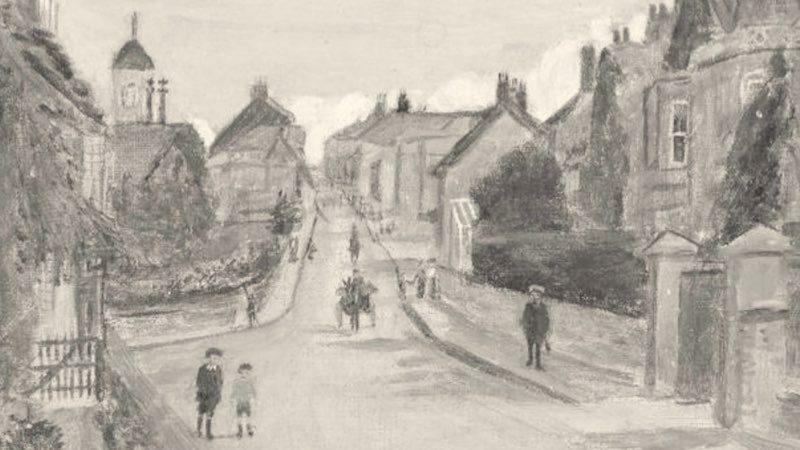
The Life And Ministry Of William Petty
Gospel Standard 1866:
Death. On Jan. 22nd, 1866, William Petty, Minister of the Gospel, Swindon, aged 54 years.
He was one of those of whom I could say with assurance that his name was in the book of life; for having been closely acquainted with him for years I can bear testimony to his character, both as a Christian and as a Minister. As a Christian, I should say at once that he had a religion of the right sort, a religion that came from God, and therefore went back to God again. He was always free to confess that he had nothing but what he had received; and being the subject of that grace which makes a man little in his own eyes, he was very averse to that kind of religion which aims to look big in the eyes of others, convinced that the best part of a living religion is that which takes place between God and the soul; and yet, when required, he was ever ready to give a reason of the hope that was in him, and that in such a way that God’s rich, free, and sovereign grace might have all the praise; for I never saw one more fully convinced or more ready to confess that by the grace of God he was what he was.
As a minister, perhaps I may say that he was little known; and yet, to a particularly favoured and select few, he was well known, the unworthy writer of these lines among the number. The first time I heard him preach, about 11 years since, every word he spoke so corresponded with my feelings that my soul clave to him from that hour. His preaching was of the right sort, that kind that is so much wanted in the present day, where the threefold cord that runs through the sacred volume is rightly set forth, doctrine, experience, and practice; doctrine, as showing what God is to, and what he has done for, his people; experience as the vital realisation of the power of those doctrines; and practice as the outward development of what is felt within. Such being the style of his preaching, he was but little admired, except by the few who had proved the power of the truths he proclaimed; for being determined to abase the sinner and exalt the Saviour, it followed that his lot below was persecution, pain, and woe.
I may say that in every respect his was a thorny path, for he was not only poor and afflicted, when spiritually considered, but for years he was the subject of a very distressing bodily affliction, which altogether prevented his ministerial labours for some time past, and in God’s time, brought him to his end, and that end, I believe, was peace.
The following are a few extracts of his own words, written on the fly leaf of Hawker’s Portions:
“June 18th, I857. I have been this day deeply impressed that I am saved in Christ with an everlasting salvation. O the blessedness of so realising an interest in Christ as to enjoy a sense of pardon and reconciliation.”
“July 11th, 1863. The doctor informs me my illness is the beginning of my end. Blessed be God, I am in the enjoyment of peace. My sufferings are great; all the springs of creature comfort are dried up, but all my springs and consolations are in Christ. O the power of faith and prayer through abounding grace to the chief of sinners! Much drawn out in prayer for deliverance from my affliction, and pleaded with the Lord in this way: ‘Lord, if thou wilt, thou canst deliver,’ when these words sweetly and softly dropped into my soul: ‘As many as I love, I rebuke and chasten.’”
“Dec. After much suffering in bed, these words came very sweetly: ‘God is love.’ They were sweet to my soul, and I felt I could bear any sufferings; for to be a subject of God’s love was to me more precious than rubies. While in the sweet enjoyment of covenant love, these words came with power: ‘Hearken, O daughter, and consider; forget thy kinsmen and thy father’s house. So shall the king greatly desire thy beauty; for he is thy Lord, and worship thou him.’ I was led to see from this that everything pertaining to the flesh must cease, and I was led sweetly into the fulness of Christ, and enabled to enjoy uninterrupted communion.”
“Oct. 15. A day ever to be remembered in my experience, as showing the faithfulness of our covenant God in Christ. I have been in deeps, and also in heights, and have experienced the love of God in both.”
His sufferings much increased as his end drew near, and he had not power to say much. That scripture, “God is love,” gave him great support and confidence. He said he was enabled to lie as a little child in the arms of its mother, and added, “Waiting faith is strong faith.”
When near his end, his wife asked him if he was still happy. He said, “Yes, in strong faith that nothing can shake.” Seeing her weep, he looked round and said, “You ought to shout.”
He retained his faculties to the last. His breathing grew less hard, so that he seemed sweetly to fall asleep.
H. White
Lingfield, Surrey.
William Petty (1812-1866) was a Strict and Particular Baptist preacher. He served as pastor for the church meeting at Swindon, Wiltshire.



